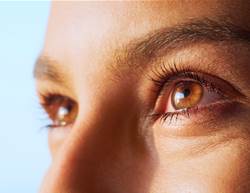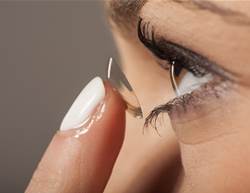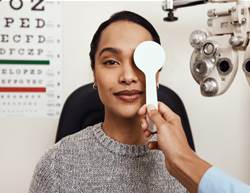You use them constantly, including to read this, yet it’s easy to take your eyes for granted. Here’s how to help keep them healthy and protect your vision.










You need an eye exam - even if you're seeing fine
Here's why your vision may be dandy, but that doesn’t necessarily mean your eyes are healthy. Eye conditions, such as glaucoma and retinal tears or tumours, can be silent in the early and even middle stages. (Book your eye test here)
SMART MOVE: Get a baseline dilated eye exam with an optometrist by age 40. In fact, Optometry Australia recommends that all children have a full eye examination before starting school, then regularly throughout life. So, if you haven’t yet had one by age 40, it’s well and truly time! During the eye examination, your optometrist will perform a number of tests to check the clarity and comfort of your vision, as well as the health of your eyes and any detection of disease. This is painless and will take less than an hour. At the conclusion of your visit, your optometrist will assess all results and either send you on your way, suggest corrective vision solutions, such as glasses or contact lenses, initiate treatment, or refer you to an ophthalmologist or other health professional. Your eyes are worth a close look, and by visiting your optometrist regularly, you’ll have a good chance of safeguarding your vision for life.
There are many ways to permanently correct your vision
Surgery has helped many people attain clear vision without the need for glasses or contacts. People with thin or irregular corneas, severely dry or allergic eyes, or an extremely high eyeglass prescription – nearsighted or farsighted – might consider these options:
› Laser surgery to permanently reshape the corneal surface to restore clear vision. It’s considered a very safe, elective surgical procedure.
› Implantable collamer lenses – tiny, flexible lenses inserted into your eyes via a small suture incision during a quick surgical procedure. They can be removed without any damage to your eyes.
› Intraocular lenses to replace the eye’s natural lens during cataract surgery. Generally, they’re only recommended for people over the age of 50.
SMART MOVE: Weigh up all your options with an optometrist.
You don't need to be old to develop eye disease
The four major age-related eye diseases – macular degeneration, glaucoma, cataracts and diabetic retinopathy – can all strike before your senior years (though you’re more likely to get macular degeneration after age 60). Glaucoma is the leading cause of avoidable blindness in Australia, affecting more than 300,000 Australians, yet it’s estimated that 50 per cent of those living with glaucoma are undiagnosed.
SMART MOVE: Genetics plays a role in who and when these problems strike, so tell your optometrist if a family member developed an eye disease at an early age. Ethnicity is another factor. Glaucoma strikes earlier and progresses faster in
people with Asian or African descent, for example, although the reason is still unclear.
Eye drops are not all the same
Standard lubricating eye drops might be a good fix for discomfort and blurriness. But if your eyes frequently feel dry, it’s best to see an optometrist to find out what’s causing the symptoms. Dry eyes could be caused by many factors and there are probably underlying issues as the cause, says optometrist with Optometry Australia, Sophie Koh. “It might be some lid disease or inflammation that needs to be treated, or the tear glands within your lid might be blocked or inflamed,” she says. The symptoms are often a result of your tear
system being out of whack.
SMART MOVE: Dry eye is very common, but people who experience it shouldn’t think they just have to live with it. Due to improvements in diagnosis and treatment of dry eye, almost all sufferers can find relief. While over-the-counter eye drops may help temporarily, if you’ve had dry eyes for a long period, you should see your optometrist for a tailored solution.
Cataracts are very treatable
Most cataracts occur as part of our ageing process. However, some have specific causes, such as diabetes, injury or steroid use. Cataracts can cause you to lose clarity in your vision, become short-sighted, have a change in colour perception or have increased sensitivity to glare. Each year, around 250,000 Australians have cataract surgery, which makes it the most frequently performed elective operation in Australia.
SMART MOVE: Delay the onset of cataracts by making healthy lifestyle choices now, like avoiding smoking and wearing UV-blocking sunglasses. But if cataracts appear down the road, don’t fret. At the early stages, glasses and contacts can help make your vision clearer, and surgery can help later on.
Your computer likely isn't ruining your eyesight
While some animal studies suggest that exposure to the blue light emitted by digital devices could be a risk factor for developing age-related macular degeneration, the evidence to support this claim is not strong, says Sophie Koh. “At this stage, we don’t need to worry about computers or phones ‘frying’ our retina,” she says. “However, there are other eye issues our screens can bring on, such
as dry or tired eyes and headaches triggered by long hours of screen time.” If you’re worried about having sore eyes and headaches from sitting at a computer all day, she recommends seeking the advice of an optometrist to rule out common vision problems like uncorrected refractive errors (which can be fixed with a prescription) or dry eye.
SMART MOVE: To help avoid these issues, increase the magnification of the screen and take regular breaks from your screen (see the 20/20/20 rule above). Also, no special glasses or coatings on glasses will beat putting away your phone or laptop well before you go to bed!
Pharmacy glasses are not enough
Everyone will need reading glasses at some point because, as we age, the eye’s lens hardens and gradually reduces in flexibility, says optometrist Sophie Koh. The lens also becomes cloudier over time, making pupils less sensitive to changes in light. This is why people in their 40s and older tend to need more light to read. But pharmacy glasses can’t be personalised for you and, depending on your eye issues, might not be helpful.
SMART MOVE: It’s important to go and see your optometrist when you think you might be approaching the time to get some help due to difficulty reading.
Fact check Wearing glasses doesn’t make you more dependent on them. They simply correct your vision. If you find yourself wanting to wear them more often, it’s because you’re getting used to seeing more clearly.
Certain nutrients can improve your eye health
Good nutrition is important for your eye health and general health. A balanced diet, including fruit, vegetables, nuts and fish, provides essential nutrients that support good eye function. And while carrots may be the best-known food for helping your eyes, eating your way to good eyesight isn’t only about beta carotene.
SMART MOVE: Optometry Australia suggests you eat a healthy, balanced diet for your overall health. Try this delicious meal with vision-boosting nutrients: Cold-water fish, such as salmon or mackerel (both packed with omega-3s) with a side of leafy greens, like spinach and kale (which provide lutein and zeaxanthin).
Your overall health affects your eyes
High blood pressure, for instance, can damage blood vessels in the eyes, while people with diabetes are at higher risk of various conditions, including cataracts and damage to the optic nerve, leading to progressive vision loss and glaucoma. Sleep apnoea is associated with vision problems too.
SMART MOVE:Do what you can to prevent these diseases. Exercise, eating well and getting quality sleep – as well as having regular eye examinations – go a long way towards protecting your eyes.
Morning red eyes could be a sign of bigger issues
If you wake up with redness only once in a while, you may simply be tired. Allergies, air conditioning and fans, plus irritating cosmetics, are other common causes. But if your eyes are always red, see your optometrist. Constant redness can be a sign of systemic conditions, such as diabetes and autoimmune disease, and there are some cancers that can cause redness of the eye.
SMART MOVE: Log how often you see redness and tell your optometrist, who may perform certain tests or refer you to an ophthalmologist or other health practitioner. But don’t panic over a new red spot: it’s probably a burst blood vessel, which is not as alarming as it sounds. These can result from vomiting or violent coughing or sneezing, and are usually harmless. But if you get them often, visit your optometrist or GP to rule out a blood clotting disorder.



.jpg&h=90&w=90&c=1&s=1)





.jpg&h=193&w=250&c=1&s=1)
